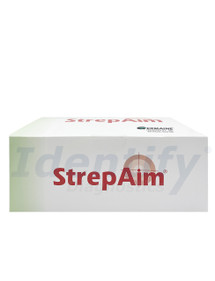Infectious Disease Tests
In the realm of medicine, infectious disease tests are vital tools used to determine the presence of specific pathogens in the human body. These tests play a pivotal role in diagnosis, treatment, and control of the spread of diseases. Here's a closer look at tests for some common infectious diseases:
1. COVID-19:
PCR (Polymerase Chain Reaction) Test:
Detects the genetic material of the virus.
Performed using a nasal or throat swab.
High accuracy rate; considered the gold standard for COVID-19 testing.
Rapid Antigen Test:
Detects specific viral proteins (antigens).
Results typically available within 30 minutes.
While faster, it may not be as accurate as the PCR test.
Antibody Test:
Detects antibodies against the virus, indicating past infection.
Uses a blood sample.
Not suitable for detecting current infections.
2. Flu A and B:
Rapid Influenza Diagnostic Test (RIDT):
Detects influenza viral antigens.
Nasal or throat swab.
Provides results in about 15 minutes.
PCR Test for Influenza:
Detects the genetic material of the flu virus.
More accurate than RIDTs.
Usually reserved for more severe cases or hospitalized patients.
3. Strep Throat (Streptococcal Pharyngitis):
Rapid Antigen Detection Test:
Detects streptococcal antigens directly from a throat swab.
Provides results within minutes.
Throat Culture:
Throat swab is cultured in a lab to see if it grows Group A Streptococcus bacteria.
More accurate than the rapid test but takes longer (usually 24-48 hours).
4. RSV (Respiratory Syncytial Virus):
Rapid Antigen Test:
Detects RSV antigens from a nasal swab.
Results available quickly.
RSV PCR Test:
Detects the genetic material of the RSV virus.
Offers high sensitivity and specificity.
Conclusion:
Each infectious disease test has its advantages, limitations, and appropriate use scenarios. While rapid tests can quickly screen patients and help manage outbreaks, especially in settings where immediate results are needed, they might not always be as accurate as laboratory tests. PCR and culture tests, although they might take longer, are often more reliable and are used to confirm a diagnosis.
In the face of infectious diseases, timely and accurate testing is crucial. It aids in the appropriate treatment of patients, guides public health interventions, and provides data for epidemiological research. As technology advances, we can expect the development of even faster and more accurate diagnostic tools.
-

CorDx Flu A/B and COVID-19 At Home Multiplex Rapid Nasal Swab Test (2 Per Box)
CorDx
$27.99CorDx Flu A/B and COVID-19 At Home Multiplex Rapid Nasal Swab Test (2 Per Box Availability:Ships in 3-5 business days. - Easy and Affordable- Highly accurate nasal swab test- Quick rapid results in 10 minutes- For use with and...$27.99 -

GenBody SARS-CoV-2 Antigen COVID-19 Test (25 Per Box)
GenBody
GenBody SARS-CoV-2 Antigen COVID-19 TestAvailability:Ships same business day if by 3pm EST. SIGNATURE required delivery. TEST PROCEDURE The GenBody antigen test is a diagnostic tool designed for the detection of the SARS-CoV-2 virus, which... -

Rapid Antigen COVID-19 Test by Clarity - Nasal Swab (25 Per Box)
Clarity
$139.88Rapid Antigen COVID-19 Test by Clarity - Nasal Swab (25 Per Box)Availability:Ships same business day if by 3pm EST. SIGNATURE required delivery.- The expiration date is typically 11 months or longer of available shelf life- For large...$139.88 -

COVID-19 Rapid Antigen Home Test FaStep - Over The Counter Nasal Swab (2 Per Box)
FaStep
$6.80FaStep Rapid Antigen COVID-19 Home Test - Over The Counter Nasal Swab (2 Per Box) ORDER MINIMUM: 3 BOXES (6 Tests)ORDER MAXIMUM: No LimitAvailability:This product is on a Pre-Order Status. - Easy and Affordable- Highly accurate nasal...$6.80 -

LifeSign Antigen COVID-19 Flu A B Combo Test - Nasal Swab (25 Per Box)
LifeSign
$483.00LifeSign Antigen COVID-19 Flu A B Test - Nasal Swab (25 Per Box)Availability:Ships same day if by 3pm EST. Signature required delivery.- The expiration date is typically 11 months or longer of available shelf life- For large orders please email a...$483.00 -

Strep Throat Tests Streptococcal Antigen - StrepAim CLIA Waived
StrepAim
$60.00StrepAim Strep Throat Test 73025 - CLIA WaivedAvailability:Ships same day if by 3pm EST. Signature required delivery. - 25 Tests per box- CLIA Waived- The expiration date is typically 11 months or longer of available shelf life- For large orders please...$60.00 -

Nasal Swab Flu Test Type A, B - BioSign Influenza CLIA Waived
BioSign
$288.75BioSign Influenza Flu Test Type A, B - Nasal Swab - CLIA WaivedAvailability:Ships within 4-5 business days. SIGNATURE required delivery.- 25 Tests per box- CLIA Waived- The expiration date is typically 11 months or longer of available shelf life- For...$288.75
